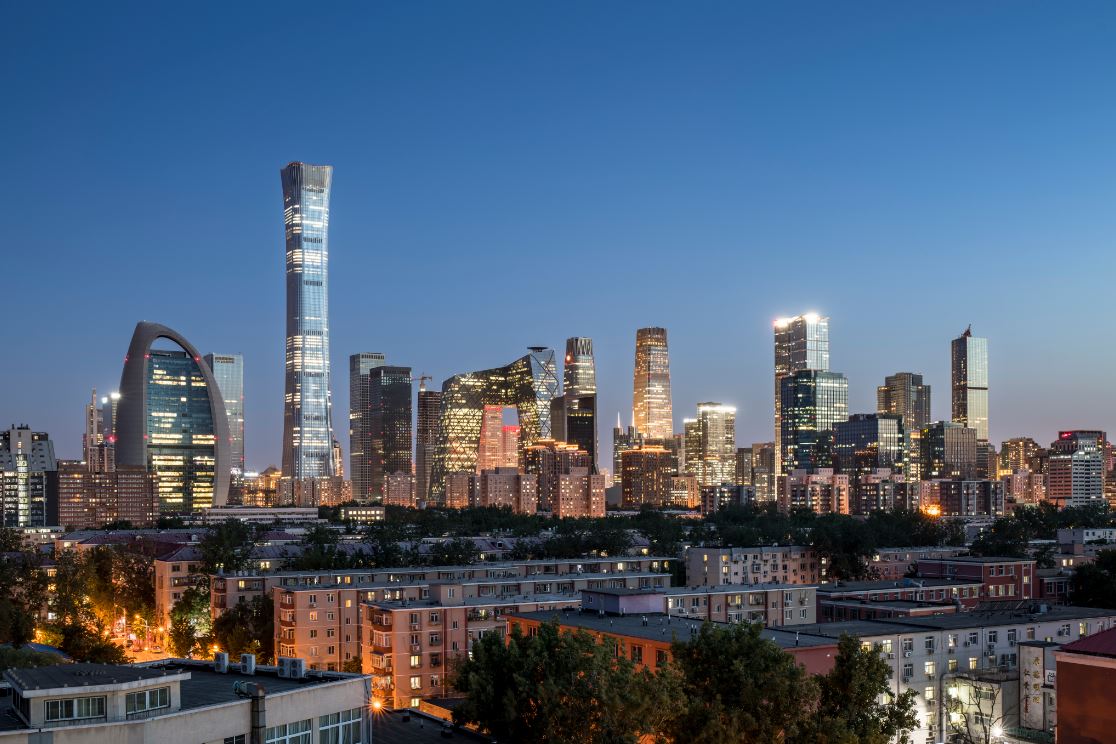Investors upbeat on Beijing's commercial property sector


The novel coronavirus outbreak has negatively impacted the commercial real estate market in Beijing, but investors are still optimistic on the sector's future in the city, with several big deals inked recently.
Last August, we published Riding the Investment Wave: Exploring Commercial Real Estate Opportunities in Beijing based on the research of the commercial property investment market in Beijing. The white paper noted that investment values of Grade A offices in the city will continue to grow in the long term, assets deployed in the city center will see a surge in enthusiasm against slower economic growth and emerging areas will show huge potential over time.
But the unexpected global pandemic has dealt a blow to the commercial property market, and both the city's office and retail sectors have shown downward tendencies.
In Beijing's office market, leasing transaction volume in gross floor area declined significantly by nearly 60 percent year-on-year in the first quarter. Overall leasing demand stalled amid the outbreak of the contagion with vacancy rates remaining at 11.3 percent.
The first quarter is conventionally a low season that coincides with the Lunar New Year, but the figure was remarkably lower in comparison with the same period of the previous year. The grim conditions forced office landlords to focus on renewals with more attractive leasing strategies, which as a result, led to an overall rent decrease of 1.3 percent.
The full impact of COVID-19 on Beijing's office market has yet to be fully seen. Along with the huge financial costs of the contagion, there are increasingly added strains on the market. It is anticipated that both leasing transactions and rents will see further downward pressure in the coming quarters. Given the hit from the outbreak, those office projects with prime management and facilities will be looked upon more favorably.
Meanwhile, the hard-hit retail sector is recovering more slowly in Beijing than in other major Chinese cities. Total retail sales revenue of consumer products tumbled 21.5 percent year-on-year in the first quarter in Beijing, among which food and beverage businesses topped their counterparts by tumbling 48.4 percent year-on-year. Fashion retailers were able to leverage online campaigns to help soften the blow, leaving restaurants and experience-oriented retailers under more pressure than others.
The financial stress of the epidemic caused rents for physical retail shops in Beijing to dip 0.5 percent in the first quarter compared with the previous quarter. Some retailers are seeking effective measures including negotiating for lower rents and closing underperforming stores while landlords responded by offering short-term rent reductions or exemptions.
The continuation of the impact on Beijing's retail leasing will see further vacancies and reduced rents in the coming months. And tight anti-virus containment measures in the capital will prolong the time it takes to bring the retail market back to normal compared with other major Chinese cities.
Despite the low season and the contagion outbreak, investment activity has not stopped in the first quarter in the city's commercial real estate market. Insiders believe the impact of the epidemic will only be short-term in Beijing-one of the nation's technological innovation and international exchange hubs. As businesses gradually reopen and the city's business environment keeps improving, the market will only improve over the long run.
Commercial real estate investment in Beijing has been robust for more than a decade. According to JLL's analysis, asset value of the city's Grade A offices surged 167 percent between 2009 and 2019. Investment volume grew significantly in the past three years and exceeded 80 billion yuan ($11.33 billion) in 2019-proof of investors' optimism toward the market.
In regards to the uncertainties brought about by COVID-19, a recent survey conducted by JLL North China research discovered that although two-thirds of respondents admitted that progress of their investments had been delayed due to the contagion, more than 80 percent of institutional investors said they were confident regarding mid to long-term market outlook.
Along with weaker market activity, reduced demand and lower rents, many commercial property investors have become more cautious. But most foreign investors are still positive on the sector's market fundamentals in Beijing. One example is the high-profile sale of LG Twin Towers to Singaporean sovereign wealth fund GIC for about 8 billion yuan. The deal not only demonstrated foreign investors' recognition of the prime office property in Beijing, but also effectively restored market confidence amid anti-contagion efforts.
In the meantime, the sale of Naga Club in Dongcheng district for 476 million yuan, up 50 percent in less than two years, marked the huge value of core commercial property assets in the city.
Several negotiations for commercial property investments in core and emerging areas of the city are approaching finalization. Facing the uncertainties and challenges, investors are continuing to pursue opportunities in Beijing. Domestic self-use commercial real estate investors have remained active, while foreign investors see the current situation as a rare opportunity.
At the moment, the epidemic has been under better control, therefore businesses are rapidly resuming operations in most Chinese cities. Although Beijing is still on medium-level alert, the city is gradually returning to pre-contagion business activity levels. Beijing's commercial real estate market is shaking off the impact of the epidemic, with investment in the sector growing.
From our perspective, as developers in Beijing speed up putting their noncore assets into the market, it will present good chances for investors to reach deals at reasonable prices. Meanwhile, sectors that have experienced robust growth during the epidemic will seek high quality office space for business expansion.
Because of the COVID-19 epidemic, institutional investors are more interested in the commercial real estate projects in Beijing that have balanced business proportions, high risk control capabilities and strong performance.
Michael Wang is head of capital markets for JLL North China, and Mi Yang is head of research for JLL North China.



































